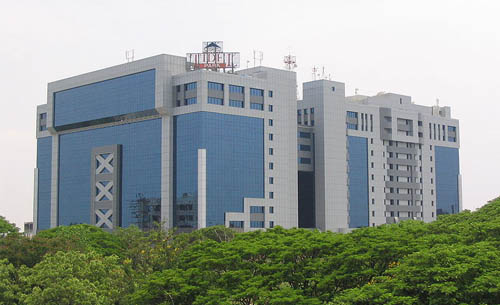
Real estate developers fulfilling government role against odds
Isn’t it ironical that real estate developers are getting into the role of the government in providing housing & infrastructure and still getting the flak?

Isn’t it ironical that real estate developers are getting into the role of the government in providing housing & infrastructure and still getting the flak?

Urban Development Minister Kamal Nath admitted today that “the government has not responded to the tremendous growth in the real estate sector in the last one decade appropriately”.

The government is keen to clean realty deals and wants to crack down on money laundering. It wants a closer look at the real estate market, widely perceived to be the biggest sink of black money in India.

We are happy with the governments focus on affordable housing. Loan amount that qualifies under priority sector lending. Now, a home loan of Rs. 25 lakh would qualify as priority sector lending.

The Associated Chambers of Commerce and Industry of India (ASSOCHAM) has suggested the government to introduce Real Estate Investment Trust and Real Estate Mutual Fund to enable investors to own a diversified portfolio of professionally managed assets in the real estate sector. In a note submitted to the government, the Chamber said that the Indian Real estate sector currently lacks any monetization vehicle for capital intensive verticals such as commercial offices and retail malls.

The real issue here is not desire to pay in cash but Triple Taxation in real estate purchase. Suppose a home buyer has INR 1 crore as earned money with him. Now it goes without saying that one must have paid 30% tax over this amount, if it is a bankable transaction. But for him Double and Triple Taxation in home purchase is 5% GST and 7% Stamp Duty. If there is a difference between Circle Rate and Fair Market Price, one would pay some amount, say INR 20 lakh in cash. Mind you! This is not Black Money but his Hard-Earned and Taxed Money but by paying INR 20 lakh as cash one is saving 5% GST and 7% Stamp Duty. So, a cash transaction of INR 20 lakhs saves him INR 2.40 lakhs. That is the whole game why everyone loves cash in the business of real estate.

On being asked about the vicious cycle of trust deficit in property market, a Dubai RERA member interrupts me. He asserts there is instead a virtuous cycle of trust; something that has goaded nationals of 100 plus countries to invest in the emirates. The reality is that Dubai property market was no different than the Indian real estate till 2008. What changed Dubai property market and where India can learn from emirates is in setting up fast track courts. A Track2Realty report.

When I said it in one of the podcasts that it is better to buy a Ready to Move apartment as it is never a costly proposition, as perceived by the home buyers at large. Compared to Under Construction, a Ready to Move apartment is loaded with execution assurance, peace of mind, and almost no additional financial burden. Ever since that I was flooded with very many queries to elaborate on the same. The questions are being raised by not just the critics within the built environment of Indian real estate this time who love to hate my critical take on the sector. A number of concerned home buyers too asked me in the comment section of the podcast to delve deeper for their better understanding.

The Union Budget 2025, ahead of a few significant Assembly Elections, quite obviously aimed at headline management & garnering likes. And to a large extent the Finance Minister & Modi Government succeeded in this, since the most vocal middle class of India finally got something to cheer about. However, the larger issue is whether the Personal Income Tax exemption level up to an income of INR 12 lakh going to change the household realities of the shrinking middle class of India. More importantly, will it lead to consumption and asset creation, and that too of a high value asset like real estate.

Can Union Budget 2025 fix the larger problems afflicting the business of Indian real estate? This question is more relevant than asking to what extent the Union Finance Minister will fulfill the wishes of the sector. This is because the real estate has largely been ignored, heavily taxed, and least considered in the budget of last few years. Irony is that for some strange reasons the stakeholders who have a large wish list on the eve of Union Budget every year, justify the sector being ignored in the post budget analysis.
